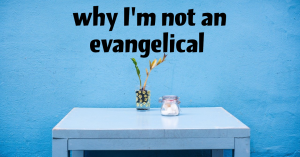Earlier this month, I attended a brilliant presentation by Petra Alsoofy, the Outreach and Partnerships Manager from the Institute for Social Policy and Understanding (ISPU). You may not be familiar with ISPU: it’s an organization based in Dearborn, Michigan, which was founded after the attacks of September 11, 2001. According to their website, “ISPU provides objective research and education about American Muslims to support well-informed dialogue and decision-making.”
ISPU seeks to help everyone understand more about what life is like for American Muslims. That was the emphasis of Petra Alsoofy’s presentation a few weeks ago. She shared lots of information with about fifty of us who gathered together at St. John’s Episcopal Church in Midland. (You can watch her presentation at this link; enter the passcode Xffx&8s9 and you’ll get access to it.)
After Petra’s presentation, I signed up for the ISPU email list. It’s important for me to hear perspectives that are outside my tradition. That’s why, among other things, I have listened to the podcast Inspired (by Interfaith Voices) every week for around fifteen years.
Yesterday, ISPU sent out results of a survey on what American Muslims believe about climate change. The title of the report reads like this: “The Majority of American Muslims Believe that Climate Change is the Result of Human Behavior and that Government Regulation is a Way to Solve for it.”
What I’m writing about today is “Why I’m Not an Evangelical.” I promise, these things are related to each other. Continue reading